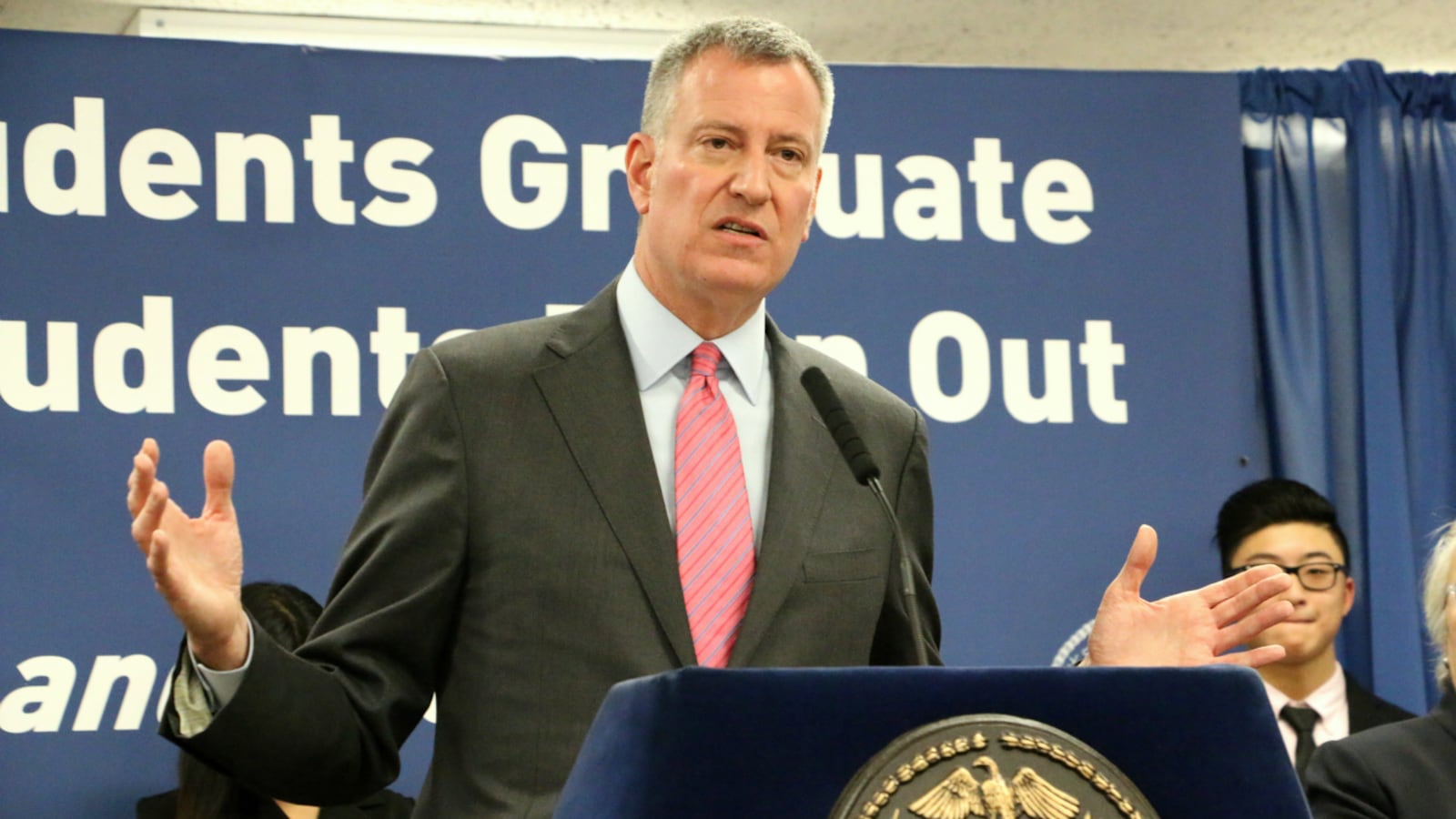The education department is among the least responsive agencies in New York City when it comes to public records requests.
Worse than the Mayor’s Office, the Department of Environmental Protection, the Administration for Children’s Services — and far worse than the NYPD. That’s according to an analysis of a year’s worth of open records requests initially gathered by the Village Voice and subsequently provided to Chalkbeat.
In fact, the Department of Education’s 103-day average response time to public records requests under the state’s Freedom of Information Law makes it the least responsive of more than a dozen city agencies. (The NYPD’s 34-day average response time, by contrast, is three times faster.)
Between April 2015 and April 2016, the education department received 1,071 public records requests. Some were either fulfilled or denied in a matter of days, but nearly half the requests they answered took 60 days or longer to be resolved. Seventeen percent dragged on over six months.
Just over 14 percent had not been resolved, despite having been requested at least a year ago.
Public records are a key mechanism for members of the public, including journalists, to look behind the veil of local government. It is important enough that then-Public Advocate Bill de Blasio released a scathing report in 2013 — the year before he became mayor — blasting the city for its scattershot response to records requests (the education department earned a “D” on an A-F scale).
The Voice requested logs that see what’s happened since, and how responsive nearly two dozen city agencies are to public records requests. They reveal, in large part, that Mayor de Blasio did not act on his own critique. The education department was largely left out of the analysis, though: Eleven months after the Voice inquiry, the department had yet to provide statistics on their responses to records requests.
But officials eventually turned the data over, and it shows the education department is the least responsive agency of the 14 that responded to the Voice. The average response time across those agencies was just over 33 days — three times faster than the education department average. Under the state open records law, agencies are expected to respond to most requests within 25 business days. (The fastest city agency was the Taxi and Limousine Commission, with a nearly four-day average response time.)
Bob Freeman, director of the state Committee on Open Government, has been disappointed with the city’s response to open records requests under de Blasio. “My thought was, ‘Gee things are going to get so much better’ and the reverse has occurred,” said Freeman. “His record regarding FOIL is terribly disappointing.”
When a department responds, that doesn’t mean that records were provided. Agencies sometimes deny requests they are legally bound to fulfill, Freeman said, assuming many requesters simply won’t bother to appeal or fight the city in court. (The education department has faced multiple lawsuits in recent years for “a pattern and practice” of failing to disclose public records.)
Education department spokesman Michael Aciman defended his agency’s response to public records, arguing that it is in compliance with the law and that nearly 86 percent of all requests were closed within one year.
“The DOE employs multiple, complex data systems, and houses hard copy records in over 1,500 schools and dozens of other facilities,” he wrote in an email. “In an agency as large as the [education department], locating, collecting and reviewing records responsive to FOIL requests can pose challenges.”
The number of requests jumped 35 percent between 2013 and 2015, Aciman added, and the city has expanded the office that handles those requests to seven full-time employees up from four in 2014.
But five other agencies received far more requests — and responded more quickly than the Department of Education. The Department of Environmental Protection, for instance, received 14,797 open records requests — nearly 14 times as many as the education department — yet responded 45 days faster on average.
Freeman, of the Committee on Open Government, acknowledged that some requests may be complex and require time to track down, but said that wouldn’t explain an overall pattern of non-responsiveness.
“There’s often no particularly good reason for delaying disclosure,” he said. “Why should it take so long?”

